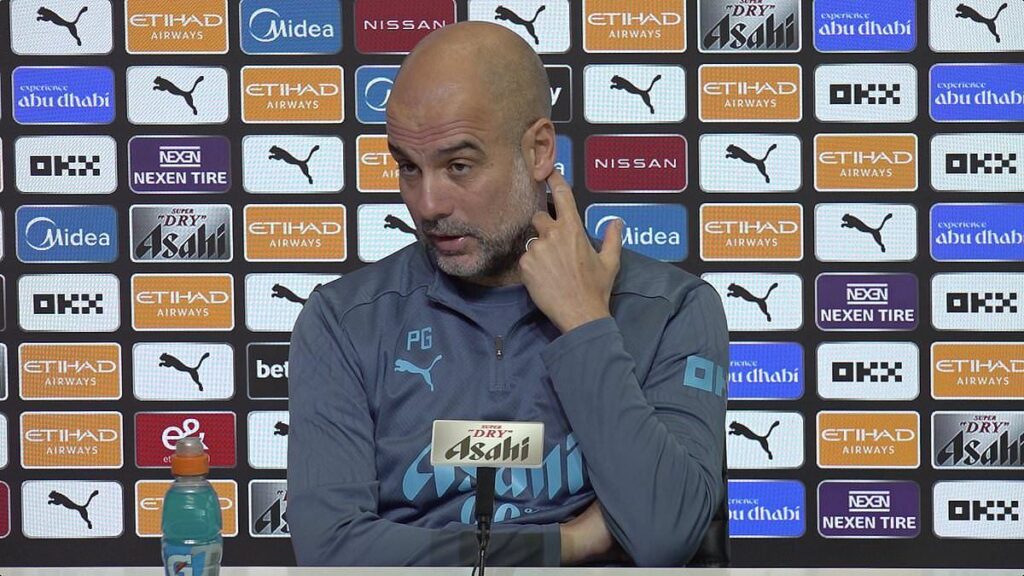Only 18% of Premier League managers remain in their roles for over three seasons. This stark statistic encapsulates the harsh reality faced by those steering top-flight clubs, a reality underscored by the recent dismissal of Erik ten Hag and the empathetic response from Pep Guardiola. This article delves into the systemic pressures that contribute to such a high turnover rate among managers and the implications of these dynamics for the future of the game.
Guardiola’s Reaction and the Intense Rivalry
In a climate rife with fierce competition, Guardiola’s expression of sympathy for Ten Hag stands out. “I always feel sorry for managers [when they are sacked],” he remarked, emphasizing the vulnerability inherent in their roles. This statement, emerging from a prominent figure in the rivalry between Manchester City and Manchester United, carries significant implications. It reflects an unspoken acknowledgment of the shared pressures that accompany the job, despite the animosity typically associated with such competition. Guardiola’s words, while seemingly straightforward, unveil a deeper comprehension of the systemic forces that lead to managerial dismissals in modern football.
Assessing Ten Hag’s Time at Manchester United
Guardiola’s evaluation of Ten Hag’s tenure transcended mere statistics. While recognizing the inconsistent league performance—where Ten Hag’s teams finished 14 and then 31 points adrift of City—he also highlighted the professionalism and integrity that Ten Hag displayed throughout his time at the club. By acknowledging Ten Hag’s accomplishments, such as securing the EFL Cup and the FA Cup, Guardiola offers a balanced critique that moves beyond the typical win-loss analysis prevalent in football. This nuanced perspective is often rare in the high-stakes world of football management, where successes are glorified and failures are mercilessly dissected.
The Unique Challenges of Premier League Management: A Guardiola Perspective
The pressures faced by managers in the Premier League are unparalleled in the professional world. Guardiola effectively illustrates this by contrasting football management with other careers such as architecture, medicine, and education—fields where professionals are seldom judged solely on immediate outcomes. This inherent instability is a defining characteristic of a football manager’s role today. The relentless demand for quick results often overshadows the need for strategic long-term planning, creating an environment where managers are perpetually on the brink of dismissal.
The Impact of Short-Term Focus on Long-Term Vision
The fixation on immediate outcomes can severely impede a manager’s capacity to implement sustainable strategies. Cultivating young talent, fostering team cohesion, and establishing intricate tactical frameworks necessitate time—an often elusive luxury for managers operating under constant performance scrutiny. This clash between urgent demands for results and the necessity of long-term vision can prove detrimental to the holistic development of a club.
Ten Hag’s Future and the Broader Implications of Managerial Turnover
Guardiola’s assertion that Ten Hag will likely rebound strongly reflects a broader trend within football management. Experienced managers frequently find themselves receiving second chances, demonstrating that a single setback does not irrevocably define a career. However, the prevalence of managerial turnover in elite football raises critical questions regarding the sustainability of the current system. The incessant churn can disrupt team dynamics, affect player morale, and potentially erode the overall appeal of the league, leading to a vicious cycle of instability.
Conclusion
Guardiola’s empathetic response to Ten Hag’s dismissal sheds light on the formidable pressures and precarious nature of Premier League management. The incessant focus on short-term results often eclipses the long-term benefits associated with strategic planning and player development. The high turnover rate among managers raises significant concerns about the equilibrium between performance assessment and the cultivation of a sustainable footballing environment. It is imperative for the industry to adopt a more holistic approach—one that recognizes the complexities of managerial roles and the necessity for patience and strategic foresight.



